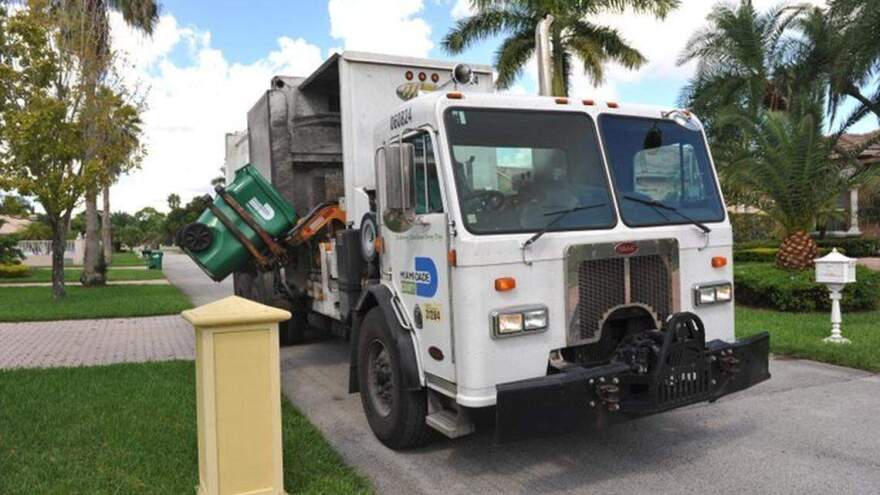Turning yard waste into something called “biochar.” Feeding food scraps to worms or black soldier fly larvae. How about using AI-powered trash cans to sort garbage.
Can any of those innovative ideas help solve Miami-Dade’s growing waste crisis?
Those three are just a few of the proposals that companies have pitched to a county hoping to find new ways to reduce the steam of waste fastly filling landfills and to improve lagging recycling rates by residents.
READ MORE: Broward County settles with Coconut Creek, Deerfield Beach over expansion of 'Mt. Trashmore'
In the search for good ideas, the Miami-Dade Innovation Authority will award $100,000 each to three startups that are developing technology to divert waste from landfills and improve public sustainability engagement. The winners will be selected from a pool of 10 finalists and announced later this month.
The county has mounting waste problems. Currently, only 37% of the more than 5 million tons of trash generated in the county each year is recycled — and even that is hampered by a 40% contamination rate. With local landfills nearing capacity, about half of the county’s waste is now shipped by train to out-of-state facilities, increasing both environmental and financial costs.

Trash contributes significantly to climate change in several ways. When food waste decomposes in landfills, it produces methane — a greenhouse gas that is over 25 times more potent than carbon dioxide over a 100-year period. Also, plastic such as water bottles are made from fossil fuels. Both their production and disposal release carbon emissions, and they can take hundreds of years to break down in the environment.
The finalists Miami-Dade has selected include both local and international companies, with entries from as far away as Ecuador and Nigeria.
County waste managers and leaders hope proposals from emerging companies will help residents better understand how to sort waste properly and reduce landfill use.
“We want to create opportunities for companies that traditionally do not have an entry point into working with large municipalities like Miami-Dade,” said Leigh-Ann Buchanan, president and CEO of the Miami-Dade Innovation Authority, which is hosting the competition, to the Herald in March. “If we’re able to use technology and innovation to improve the efficiency of how we manage waste in the county, that could ultimately reduce the cost borne by residents.”

Here are the finalists:
- Clean Earth produces biochar and electricity using a kiln.
- Scrapp scans waste using QR codes and educates users on the best method of disposal.
- Compost for Life uses black soldier fly larvae to break down organic material.
- X-Met has a machine that composts material in 20 minutes.
- MyMatR automatically sorts waste at the point of disposal using AI.
- Fertile Earth Worm Farm composts organic material into soil blends.
- Ecowrap uses GPS tracking to help waste management with their operations.
- Pakam connects waste companies with a tracking and payments program.
- Junkier scans waste and uses geo-location to suggest the best way to dispose.
- Nina Energy turns scraps into solid biofuels and biochar.
Ashley Miznazi is a climate change reporter for the Miami Herald funded by the Lynn and Louis Wolfson II Family Foundation and MSC Cruises.
This story was originally published by the Miami Herald and shared in partnership with the Florida Climate Reporting Network, a multi-newsroom initiative founded by the Miami Herald, the Sun-Sentinel, The Palm Beach Post, the Orlando Sentinel, WLRN Public Media and the Tampa Bay Times.





